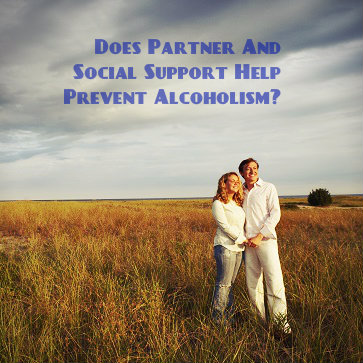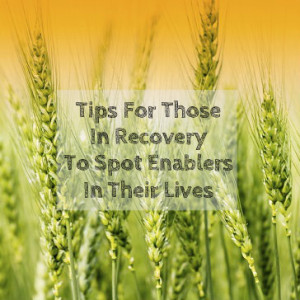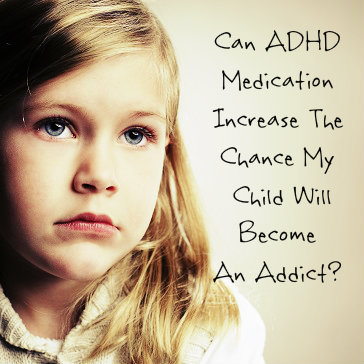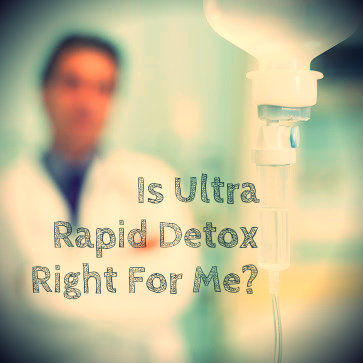Social support is the general term for the connections we develop and maintain between family members, friends and other loved ones or more distant acquaintances. Generally speaking, people with highly developed forms of these connections have an increased ability to withstand daily and traumatic stresses and cultivate a sense of mental/emotional well-being. In a study published in February 2014 in the journal Alcoholism: Clinical & Experimental Research, researchers from Purdue University explored the impact good social support has on the genetic and environmental risks for developing a diagnosable case of alcohol abuse or alcoholism.
 Benefits Of Social Support Networks
Benefits Of Social Support Networks
Social support networks can involve many people or just a few. In addition, they can form in informal settings such as friendships, blood relationships or intimate partnerships, or in more formal settings such as clubs, churches, associations or other organizations. Forms of support that can come from belonging to a given network include emotional support, physical or material support and the support provided by sharing various types of valuable or relevant information. In addition to improved stress resistance, current evidence indicates that people who can consistently rely on their social support networks experience benefits that include reduced risks for chronic illness, higher rates of survival when chronic illnesses strike and increased access to important resources and opportunities.
Genetic And Environmental Risks For Developing Alcohol Use Disorder
People who consistently misuse alcohol significantly boost their chances of developing alcohol use disorder (the modern-day term used to describe the symptoms of both alcohol abuse and alcoholism). Any given person’s overall odds for experiencing this disorder stem from both genetic and environmental factors. Broadly speaking, genetic factors come from inherited changes or alterations passed on through a person’s DNA, while environmental factors include all influences that first arise after a person is born.
The National Institute on Alcohol Abuse and Alcoholism reports that about half of all known risks for alcoholism are genetic in nature. Instead of acting in simple, entirely predictable ways, the inherited chances of developing alcoholism interact in any given individual and produce unique hereditary risk profiles. Similarly, environmental factors have a complex, overlapping impact on alcoholism risks rather than acting in completely predictable patterns. Despite the level of uncertainty involved, researchers and doctors can typically look at a person’s combined genetic and environmental risk factors and roughly determine his or her chances of developing diagnosable alcohol-related problems.
Impact Of Social Support On Risks For Developing Alcohol-Related Issues
In the study published in Alcoholism: Clinical and Experimental Research, the Purdue University researchers used an examination of 672 sets of adult twins to determine the impact of social support on both the genetic and environmental risks for developing alcohol-related issues. They conducted this project because very little research had been done on the alcohol-related effects of social support, in particular. Specific forms of social support under consideration included family-based support, friend-based support and the support provided by an intimate partner. The researchers used a sophisticated form of analysis to separate the effects of genetic influences from the effects of environmental influences in each study participant.
Intimate Partner Support And Impact On Alcohol Abuse
After reviewing their findings, the researchers concluded that, in any given individual, the mixture of genetic and environmental factors for alcohol-related problems varies according to how much social support that person gets from an intimate partner. Specifically, people with low levels of intimate partner support are affected by environmental factors more often than genetic factors, while people with high levels of intimate partner support are affected by genetic factors more often than environmental factors. The researchers also concluded that the presence of strong social support from a friend or family member does not have any substantial effect on the genetic and environmental risks for alcohol abuse or alcoholism.
Determining If Someone Will Be Susceptible To The Environmental Factors That Contribute Alcohol Problems
The authors of the study published in Alcoholism: Clinical & Experimental Research believe they have identified a potentially critical aspect of the underlying equation that helps determine if a person will be susceptible to the environmental factors known to contribute to the development of diagnosable problems with alcohol consumption. Specifically, they note the importance of knowing which types of social support reduce environmental risks. In the future, doctors may be able to use measures of social support to increase their ability to predict the eventual onset of alcohol use disorder in their patients.
Read More About 12 Step Programs – A Guide For Families Of Addicts
In the United States, 48 percent to 98 percent of illicit drug users smoke cigarettes compared to 19.8 percent of the general population. For those involved in treatment programs for addiction, there is some concern that treating smoking addiction at the same time as illicit drug addiction could impact the effectiveness of the core addiction treatment.
This hypothesis has been put to the test in a recent study, and the findings suggest that treating smoking addiction at the same time as addiction to stimulants such as cocaine and methamphetamine doesn’t affect the individual’s chance of remaining abstinent. The finding could prompt a shift in how rehab centers deal with people addicted to both nicotine and illicit drugs, but there is an important limitation that could impact how well the finding translates to real-world scenarios.
Studying Treatment For Those Addicted To Drugs And Cigarettes
 The researchers ran a randomized trial over the course of 10 weeks at 12 different substance abuse treatment programs between February 2010 and July 2012. The participants had to meet the diagnostic criteria for methamphetamine or cocaine addiction (or both), and also be interested in quitting smoking. The treatment for drug addiction went ahead as it ordinarily would for all participants during the study period, but they were split into two groups. In the first group, 271 participants simply received this “treatment as usual,” but in the second group, 267 participants were also given smoking-cessation treatment to see if it had an impact on their substance use outcomes.
The researchers ran a randomized trial over the course of 10 weeks at 12 different substance abuse treatment programs between February 2010 and July 2012. The participants had to meet the diagnostic criteria for methamphetamine or cocaine addiction (or both), and also be interested in quitting smoking. The treatment for drug addiction went ahead as it ordinarily would for all participants during the study period, but they were split into two groups. In the first group, 271 participants simply received this “treatment as usual,” but in the second group, 267 participants were also given smoking-cessation treatment to see if it had an impact on their substance use outcomes.
The smoking-cessation treatment consisted of counseling over the first 10 weeks of treatment along with the quit-smoking medication bupropion. After the fourth week, the group assigned to smoking-cessation treatment also received a nicotine inhaler to help with cravings. The researchers were mainly interested in how many participants in each group were abstinent from stimulants during each of the treatment weeks (confirmed by urine testing), but also looked at nicotine (and other substance) use as a secondary outcome, confirming smoking abstinence through a carbon monoxide breath test. The researchers followed up with the participants three and six months after the treatment period to investigate longer-term outcomes.
What The Smoking-Cessation Treatment Study Found
The results show that there was no significant difference in the number of weeks abstinent from stimulants between the two groups after 10 weeks, although the group that received smoking-cessation treatment averaged 77.2 percent of weeks’ abstinent from stimulants compared to 78.1 percent of those who just received treatment as usual. This isn’t a “significant” result because the difference wasn’t large enough to rule out random statistical fluctuations; in other words, the outcomes were the same.
It was also found that those who received the smoking-cessation treatment were considerably more likely to have quit smoking at any point during the 10-week trial period and throughout the follow-up. Given that this had no impact on overall stimulant-use outcomes over the 10-week period, the researchers suggest that smoking addiction can be treated alongside drug addiction without having a negative effect.
However, the results for abstinence from stimulants after the six-month follow-up were different. There was a significant difference in the number of drug-free days between the groups, with those who also received smoking-cessation treatment having had more drug-free days than those who just received treatment as usual. If anything, this suggests that concurrent smoking cessation and stimulant addiction treatment could have a benefit for both outcomes.
Limitations Of The Smoking-Cessation Treatment Study
The results may be promising, but there is an important limitation that could have an impact on the relevance of the findings. In the research, the smoking-cessation treatment included weekly counseling, a pharmacological treatment and nicotine replacement therapy. This is a full battery of stop-smoking treatments, and is unlikely to represent the level of stop-smoking care a drug addiction treatment facility could realistically provide. Additionally, a large percentage of participants were able to remain abstinent from stimulants, which may indicate that some other factor is making this study unrepresentative of real-world outcomes.
Treating Substance Abuse And Smoking Addiction Together Still May Be Helpfu
However, these are relatively minor criticisms, and the authors point out that other research (looking at treating alcoholism and smoking addiction together) has also shown that smoking-cessation treatment appears to have a positive impact on substance abuse treatment.
The core finding of this research suggests that treatment providers shouldn’t be opposed to drug users attempting to tackle nicotine addiction at the same time as their illicit drug problem, but more studies will be needed to see if this effect continues in more realistic scenarios.
Read More About If Addicts Can Make The Choice To Stop Using
We’ve come through the early months or years of recovery and lived to tell the tale. We’ve made it through the 12 steps, done our inventories and amends, and we’re continuing to develop relationships in our 12-step fellowship. We’re growing in awareness of our character defects and beginning to learn what it means to be of service. Our relationships are improving. We’ve even started to find some joy and contentment. Things are looking up.
Not Letting Negativity Threaten Your Sobriety And Joy
 But for many of us who are accustomed to a “faster” life, we can’t help looking at our lives in addiction recovery and wondering: Is this all there is?
But for many of us who are accustomed to a “faster” life, we can’t help looking at our lives in addiction recovery and wondering: Is this all there is?
We might even be hesitant to express those thoughts out loud. Here we’ve been saved from the wreckage of our former days of addiction. We’ve been given the chance to live again. We’ve been freed from bondage. Who are we to complain that this is all just a little bit boring?
We may not want to say it outright, but we also know, as addicts, that the secrets and dissatisfactions we harbor have the potential to become slips and other serious threats to our sobriety. If we want to avoid a relapse, we have no choice but to be as honest as we can be. We can’t let our feelings fester.
Getting Over Believing That Your “Highs” Were Actual Highlights In Your Life
So let’s start there. Look at your day-to-day life now. You probably have calls to your sponsor, coffee dates with fellow 12-step members, your schedule of meetings, going to work, taking care of responsibilities around the house, spending time with family, paying bills, running errands, etc. You may recognize that all of these are good things and they are safe and respectable. But they lack a lot of the thrill and appeal and adventure of the former days when you often didn’t know where you would wake up on any given morning, following any and all manner of escapades the night before.
As addicts, we craved excitement in our lives and we sought it in the practice of our addiction. Through trying to keep up with the fast life, in getting high and by involving ourselves in a lot of drama, we worked to convince ourselves that our lives were pretty interesting and adventuresome. Every day could be a holiday if we could get high.
And now that we are recovering, we acknowledge that we still crave a little adrenaline. This is not a bad thing; it is a normal human thing. What we must do is not simply accept that our lives in sobriety are consigned to the dull day-to-day grind into eternity, but that we are humans who like excitement.
The answer is not to accept boredom but to begin expanding how we think about excitement. As addicts, quite honestly, we were a little lazy. Naturally, getting high provided a thrill, but it was a cheap one.
Seeking New Adventures And Positivity In Sobriety
Seek new adventure. There is nothing wrong with being a thrill-seeker, and once you’ve cleaned up the messes of the many “thrills” you experienced as an addict, you may find yourself getting a little antsy. Adventure and thrill is a good thing — it only becomes a bad thing when we seek it in the wrong places. Start seeking it in the right places. Travel, climb mountains, try new sports, meet new people—plan your own adventure. The world is full of rushes and thrills beyond what we could ever find in a bar or a bottle. Looking for real adventures and genuine thrills? Go out and find them!
Be grateful. Much of our mood and how we feel about our lot in life are products of our attitudes and perceptions. Yes, we understand that things just aren’t as fun as in the former days. But is there anything you might be forgetting? What about the fear? The hopelessness? The depression and the drama that have so magically disappeared from your life? Gratitude that we are no longer running from the law, fighting to hold a job, losing relationships and feeling our sanity slip away can help us to reframe the way we see our current situation. Yes, we may have had fun drinking ourselves into oblivion, but can we acknowledge that it wasn’t all excitement and adventure and that there are some very real benefits that come from the sober life?
Embrace real life. We must also come to simply accept that every day can’t be a holiday. That was our addict misperception. Our expectation was that everything should be fun, exciting, comfortable and exhilarating—we weren’t interested in anything that didn’t give up that thrill. Here’s the reality: life isn’t always fun and we all have to do tedious, boring things. Pain, discomfort and getting up and going to work every day are just the simple facts of life. As addicts we couldn’t deal with that. In recovery we must start to accept it, and even embrace the simple joys and contentment that the sober life brings.
Read More About Addiction Recovery Tips!
 Getting sober is a major achievement and one you should be proud of. Addiction is a terrible disease and taking the steps to recognize it, to get help, and to get clean are important accomplishments. Now that you’re sober, you just need to maintain that sobriety. The process of recovering from addiction is a lifelong one, but there are things you can add to your life to help you avoid relapsing. Among these is the presence of healthy relationships. Ditch the enablers in your life and build new relationships with people who will support your sobriety.
Getting sober is a major achievement and one you should be proud of. Addiction is a terrible disease and taking the steps to recognize it, to get help, and to get clean are important accomplishments. Now that you’re sober, you just need to maintain that sobriety. The process of recovering from addiction is a lifelong one, but there are things you can add to your life to help you avoid relapsing. Among these is the presence of healthy relationships. Ditch the enablers in your life and build new relationships with people who will support your sobriety.
Who Are My Enablers?
Your enablers may not be easy to spot immediately. An enabler is anyone who encourages you to use drugs or drink, whether or not he means to do it. The way in which this person encourages your habit may be obvious. For instance, if you have friends from the days when you were using, and they are still using, it will be very difficult for you to be around them without giving in to temptation. These people may or may not actively encourage you to use, but the simple fact that they are not sober makes them enablers.
Enablers can also appear in more subtle ways. Maybe you have someone in your life that always made you feel bad about yourself. She criticizes you and attacks your sense of self-worth. She may not be telling you to use drugs, but by making you feel bad, she may cause you to be tempted to relapse. If you are not sure who might be bad for you as a sober person, ask someone you trust. Sometimes it’s easier for others to see the subtlety of an enabler.
What Is A Healthy Relationship?
A healthy and mutually supportive relationship, whether romantic or platonic, is one in which each person respects and trusts the other. Each person should also be honest with the other, even when it isn’t easy to tell the truth. People in healthy relationships communicate well with each other, they support each other and they maintain their own separate identities. If a friendship or romantic relationship, or even a relationship with a family member has these characteristics, and the person encourages you to stay sober, you have a healthy relationship.
How Do I Make New Friends?
So what if your relationships are mostly unhealthy leftovers from the days when you were using? It’s time to make new friends. First, turn to family members with whom you can establish, or re-establish, a meaningful relationship. You may feel intimidated by the idea of making new friends, but your family is not likely to turn you down. Rebuilding relationships with your family will give you the confidence to go out and meet new people.
When you’re ready to venture out and find new, sober friends, consider starting with your support group. You can make great friendships with people who understand where you have been and that you want to stay sober. Together, you can help each other avoid relapse. You might also turn to other organizations that are important in your life, such as your church or your school. Getting involved in volunteer work also gives you the opportunity to make new friends who will share your values.
Nourishing New Friendships
Once you have new, healthy, and supportive relationships, be sure to nourish them. Friendship is all about give and take. You will benefit greatly from having sober friends, but make sure you give back to them as well. Be a good friend and you will reap the rewards of healthy relationships.
Read More To Find Out If You Are A Chief Enabler For An Addict
Studies reveal that anti-smoking and anti-drinking campaigns are working. Smoking rates in the U.S. have fallen dramatically. But not everyone is being helped with their substance abuse problems.
Dr. Sarah M. Hartz, an assistant professor of psychiatry at Washington University School of Medicine in St. Louis, is the author of a new study done in conjunction with the University of Southern California that shows individuals with severe mental illness have higher rates of substance abuse.
Unique Treatment For Substance Abuse And Mental Illnesses
The National Alliance on Mental Illness says health professionals estimate that half of the individuals who suffer from a psychiatric disorder also abuse alcohol, tobacco or drugs. Trying to manage a mental illness becomes twice as difficult when it is coupled with trying to also manage a substance abuse problem. Each illness demands its own treatment and must be treated individually for the person to heal completely.
Higher Percentages For Drinking And Smoking
Half of the 20,000 participants in Hartz’s study were diagnosed with bipolar disorder, schizophrenia or schizoaffective disorder. When the psychiatric patients were compared with individuals from the general public, the psychiatric patients had higher rates of using alcohol, smoking tobacco, smoking marijuana and other drug use.
While 75 percent of the mental illness participants were tobacco smokers, only 33 percent of other participants smoked. Thirty percent of mental illness participants were binge drinkers compared to eight percent of other participants. Fifty percent of the mental illness participants used marijuana regularly compared to 18 percent of the other participants. Fifty percent also used other illicit drugs compared to only 12 percent of the mentally healthy participants.
How Race Plays A Role In Substance Use
In other studies on alcohol and drug abuse, race and ethnicity sometimes determines the prevalence of their use. Some groups are more susceptible to use than others. In this study, all races and ethnicities were susceptible if they had a severe mental illness.
Turning To Substances To Escape Negative Emotions Causing Hidden Problems
When mental illness affects thoughts and emotions, individuals sometimes turn to substance use to escape. Tobacco and alcohol use over the years can cause heart disease, cancer, liver failure and other physiological problems that can ultimately end their life. Dr. Hartz sees these physiological problems as the hidden problems.
People with a mental illness may be carefully watched for any signs of suicidal thoughts but not watched as carefully for emphysema. Because loved ones may be so concerned about immediate tragic events like a drug overdose or suicide, they may miss seeing long-term threats from tobacco, alcohol or other substances.
Hartz notes that mental illness patients have a shorter life span by one to two decades than the average person. This isn’t because of immediate tragedy spurred by their mental illness. Most of the causes are ones like cancer and heart disease that were developing in their body over the years.
Finding A Way To Help, Holistically
Mental health specialists look holistically at their patients. They seek and address all of the problems that are affecting the mind and body of a person with mental illness. Hartz believes that if all specialists were to ask their patients about their tobacco, drug and alcohol use that more patients could be led to a happier and healthier life. Through initial screenings and periodic follow-ups, patients could be monitored for any previous substance use or any new substance use that may develop during their treatment.
Trying the tried and true strategies of smoking and drug intervention doesn’t often work for mental health patients, cautions Hartz. Through her studies she has noticed that mental health patients need their own style of intervention in order to heal. As new strategies arise to combat alcohol and drug abuse specifically in people with mental illness, holistic healing can begin.
Read More About Holistic Rehab Therapy!
Our lives today have become inextricably entwined with electronic devices. For many reasons, our cell phones, tablets and other devices have helped us. They allow us to connect more easily with others, to work on the go or work at home, and to access more information. There are downsides too. Becoming addicted to using your devices is a real possibility. We can become so dependent on them that it gets difficult to put them down or to turn them off.
 According to studies, being addicted to your cell phone is similar to other impulse control disorders, like compulsive shopping. All activities linked to our phones can lead us to use them obsessively. This includes texting, surfing the Internet, emailing and playing games. Using devices can start to take over your life, but if you are aware of the issue and your own usage, you can prevent it
According to studies, being addicted to your cell phone is similar to other impulse control disorders, like compulsive shopping. All activities linked to our phones can lead us to use them obsessively. This includes texting, surfing the Internet, emailing and playing games. Using devices can start to take over your life, but if you are aware of the issue and your own usage, you can prevent it
On reading this, you may feel immediately defensive. Maybe you don’t think you use your devices to an excessive degree. Find out just how much you are on them by keeping a log. Keep a notebook handy or a note writing app on your Smartphone, and record the time you spend doing anything on your phone, tablet or computer that is not directly related to work or actual phone calls. You may just be surprised by how much time you are texting, checking Facebook updates and Tweets, or checking on emails. Imagine what else you could do with all that time.
Can You Limit Device Use In Certain Situations?
A major irritant of modern life is when people use their phones in inappropriate situations. Checking your texts at dinner, at the movies or when in the middle of a conversation with a real, live person is inconsiderate. If you struggle to turn away from your phone in these situations, you could have a problem. Set a goal for yourself of resisting those urges. When you are with a friend or your family, tell them that you are trying to limit yourself and encourage them to call you out when you slip up. Their support will help you.
Can You Unplug For An Hour?
Test the extent of your devotion to your devices by trying to leave them alone for just one hour when you’re alone and have no one to distract you. Turn off your phone, put your tablet in a drawer, turn off your computer, and walk away. Pick up a book or magazine, bake something, watch a movie, or do anything else for an hour and see how it feels.
If you are disturbed by constant urges to check your texts, your emails, or your social media pages, you may have the beginnings of a device addiction. If you can get past those urges, however, and spend the hour avoiding your devices, it will make a difference. Try to do this once a day, and even twice a day to get some space between you and your gadgets.
Device addiction in all its forms—Internet, gaming, texting—is a real thing. You can become too attached to your gadgets and what they represent: connection. It’s OK, and even healthy, to disconnect for periods of time. Unplug and do something else and you may just find that you had been neglecting other hobbies and activities you enjoy. You may also find that you were failing to connect with people in the real world. As long as you are aware and make a point to limit yourself, you can avoid the dreaded device addiction.
Read More About Internet Risks And Addictions
If you have had a child diagnosed with attention deficit hyperactivity disorder (ADHD) you probably have a lot of questions and just as many concerns. We hear a great deal in the media about over-medicating children. What does this mean for your child and his disorder? Will using medications to help him focus put him at risk for further drug abuse, and even addiction? The answers to these questions are not simple, but the more you learn about ADHD medications and treatment, the more comfortable you will be making decisions in the best interest of your child.
How Do Medications Help Children With ADHD?
 ADHD is a disorder that is characterized by difficulty focusing and paying attention, impulsive and inappropriate behaviors and hyperactivity. These often manifest during school hours making academic success a major challenge for kids with ADHD. Medications used to treat the disorder are stimulants. This may seem counterintuitive, but they dramatically reduce hyperactive impulses, and allow children to focus and pay attention. For the best results, a combination of medication and behavioral therapy is often recommended by experts.
ADHD is a disorder that is characterized by difficulty focusing and paying attention, impulsive and inappropriate behaviors and hyperactivity. These often manifest during school hours making academic success a major challenge for kids with ADHD. Medications used to treat the disorder are stimulants. This may seem counterintuitive, but they dramatically reduce hyperactive impulses, and allow children to focus and pay attention. For the best results, a combination of medication and behavioral therapy is often recommended by experts.
Are ADHD Drugs Addictive?
Stimulants used to treat ADHD, including Adderall and Ritalin, are addictive. Like other addictive drugs, they produce a pleasurable sensation related to certain brain chemicals. If these drugs are abused over time, the user can become addicted. When taken as directed, however, the risk of becoming addicted to these drugs is low.
If you monitor your child’s intake of his ADHD medications and follow your doctor’s instructions carefully, there is little chance that he will become addicted. It is natural to be concerned about the possibility. If it makes you more comfortable, keep the medication locked away and give the right dose to your child when he needs it. By controlling the administration, you can be certain he is not taking more than he is supposed to.
Does Use Of ADHD Drugs Lead To Further Drug Abuse?
There has been some debate about whether or not being medicated with stimulants for ADHD puts children at risk for later drug abuse. The best answer so far, thanks to researchers, is no. There seems to be little to no evidence that using ADHD medications as directed will lead to experimentation with other drugs, or addiction.
The greater danger results from the misuse of ADHD medications as a study drug. Teens and young adults, especially those in high school and college, abuse prescription stimulants as an aid to both studying and partying. One major reason for this abuse is that the medications have the effect of helping them stay awake. If a student needs to cram for an exam, she might take Adderall to stay up all night. Some students even take the medications to stay up late for the purpose of partying all night long. Both habits are very risky because they involve using addictive drugs without supervision from a doctor. This behavior can lead to addiction and other health problems.
Making Sure All Of Your Questions Are Answered When It Comes To ADHD Meds
The bottom line is that your child with ADHD could benefit greatly from supervised use of stimulant medications. If your doctor wants your child to try one, make sure all of your questions are answered and your concerns are addressed, but rest assured that using these drugs will not make your child an addict or a future drug abuser. Supervise your child, explain to him the dangers of abusing any kind of drug, and speak to your doctor to make sure that you and your child feel comfortable going forward with treatment.
Learn More About The ADHD And Drug Abuse Connection
07 Feb 2014
What’s Involved In Ultra Rapid Detox?
Detoxification, the process of waiting until your body has eliminated all of a drug from your system, can be a very difficult time. As your body detoxifies, you may experience uncomfortable, painful, and even dangerous symptoms. The fear of going through this is a roadblock for many addicts. Some treatment specialists have tried to develop a quick and painless detox process to help their patients. While their intentions may be good, trying to get through detox too quickly may present its own problems. Before you consider any rapid detox, make sure you understand the risks.
What Is Ultra Rapid Detox?
Detox is no fun for any type of addict, but for those hooked on opioids, the pain and discomfort associated with detoxing can be overwhelming. In fact, it is best for anyone detoxing from these drugs to be cared for by a loved one at the very least and by a medical professional whenever possible. Because the symptoms can be so severe, not all addicts make it through. Many turn back to drugs to get relief.
 To increase the odds of a successful detox, the process of ultra rapid detox was developed by clinicians. Patients undergoing this process are put under anesthesia for anywhere between two hours and two days. During that time, medical caregivers administrate medicines to the patient that help to quickly flush the drugs from his system. The hope is that the patient wakes up having completed detox without feeling any withdrawal symptoms.
To increase the odds of a successful detox, the process of ultra rapid detox was developed by clinicians. Patients undergoing this process are put under anesthesia for anywhere between two hours and two days. During that time, medical caregivers administrate medicines to the patient that help to quickly flush the drugs from his system. The hope is that the patient wakes up having completed detox without feeling any withdrawal symptoms.
Does Ultra Rapid Detox Work?
Some patients and their doctors will claim that an ultra rapid detox worked. However, the research does not back up that conclusion. Randomized studies have shown that using anesthesia along with medications to quickly detox works no better than other detox methods. Many patients undergoing ultra rapid detox still experience withdrawal after the procedure is complete, and the rates at which they stay sober weeks after are comparable to other types of techniques.
Are There Any Dangers Associated With An Ultra Rapid Detox?
Not only is an ultra rapid detox not necessarily more successful than other techniques, it also carries some risks. In one study of ultra rapid detox techniques, 3 patients out of 35 experienced serious health consequences as a result of the treatment and needed to be hospitalized. While most patients undergoing this treatment will not experience anything so serious, the possibility exists.
What is more likely to happen with ultra rapid detox, and of serious concern, is that patients may not receive any other kind of treatment. There is no quick fix for addiction, but many who receive this type of care believe it is all they need to get sober and to stay sober. Detox, no matter how it is done, is only the first step in recovery from addiction.
Should I Consider Ultra Rapid Detox?
If you are considering this type of medically assisted detox, speak with your doctor about it first. You also have another option, called rapid detox. With a rapid detox, you will be mildly sedated, but not to the extent that is needed for ultra rapid detox. If you are seriously considering either type of procedure, make sure you understand the risks and that detox is just one part of a complete treatment plan. Be sure to include a stay at a rehab facility, counseling sessions, support group meetings and other tried-and-tested recovery support to ensure the best odds of success.
Read More About Detox Programs For Addiction



